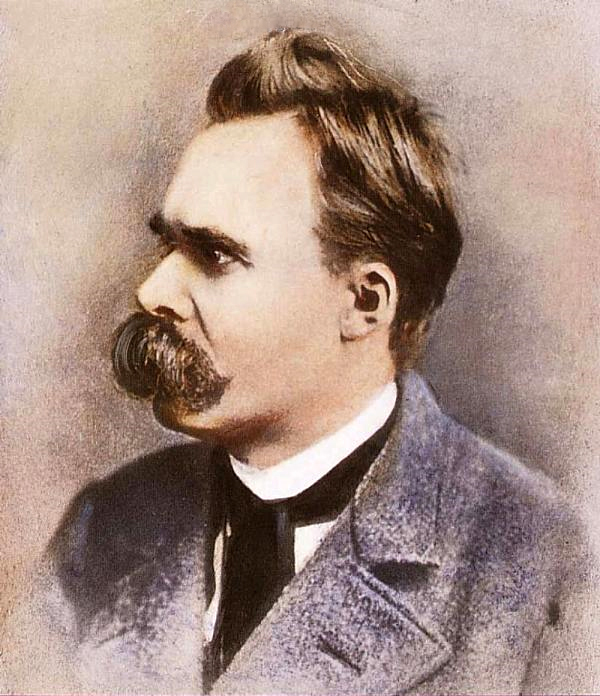A Quick Guide to Stoicism
A sudden deadline, your train delayed, an earthquake, a financial panic, sleeping through your alarm. Any unpredictable situation, life-threatening or not, will give you spark of energy which can go in any number of directions. We all know the worst ways but often find ourselves panicked, abusive, depressed or simply non-active.
In my life, the principles of Stoicism have become a constant to resolve the certainty of the uncertain world around us. A guide to living a better, more productive and conscientious life, Stoicism is a philosophy, an operating system, a process which ebbs and manages the tide of the uncertain world, a philosophy with principles, practices, and actions which work for the applications of today.
Different from other philosophies, The Stoics are primarily concerned with the question, “how does one live a good life?”. But importantly, Stoicism answers this with practical application.
There are three defacto leaders of Stoicism – all coming from hugely diverse backgrounds. The most well-known, Marcus Aurelius, was the Emperor of Rome (essentially the most powerful man in the world at that time). Seneca was a playwright, the richest man in Rome and controversially, advisor to Nero. Epictetus, on the other hand, began as a slave before starting to lecture his thoughts; becoming a principle Stoic teacher to some of the greatest minds in Rome.
However, this was never to be confined to ancient Rome. The books of these three men have made their way through history to tutor some of the most respected people in the world. From Thomas Edison, Theodore Roosevelt, and Montaigne to James Stockdale, Beatrice Webb and George Washington. Keeping their books bedside their bedsides, these important figures used Stoicism to overcome adversity, inspire action, deal with emotional turmoil, ebb radical desires, and accomplish what others would have thought impossible. Because it’s a philosophy that works.
Here are a few of my favourite practices from each:
Perception
Similar to some earlier philosophies such as, Buddhism, Stoicism understands that it’s our perceptions that shape our reality.
“Today I escaped from anxiety. Or no, I discarded it, because it was within me, in my own perceptions—not outside.”
Marcus Aurelius
This is the first point of call. Once we learn how to see things clearly, avoiding any emotional attachment, only then can we take the best course of action.
One practice of perception is to find something that irritates you (this can be quite easy if you live in London). Perhaps someone cut you off in traffic, maybe the internet went down and you needed to send an important email, perhaps someone simply gave you a “dirty look”. Take whatever it was and remove yourself out the equation.
Now watch as the subjective turns objective. How once you remove your ‘self’, the thing that irritates you now becomes just an occurrence in the universe. It’s not happening to you anymore, it’s simply just happened. This may sound like some awful positive thinking malarky, but it’s from this much clearer and objective perspective we can make effective plans to move forward.
We see this in action all the time whenever a friend asks our advice about something troubling them. They come to us with relationship trouble, their work problems, a family death, and it’s so much easier to give them advice than it is to listen to our own when something terrible has happened to us.
Understand: When it’s someone else, we’re not broiled in the emotions. Our ‘self’ has not become attached to the situation. They, on the other hand, are hemmed in by their emotions. It’s like they’re lost in a forest, the thick brush blocking the light; unable to see the way out. But us, above this forest, can clearly see the way – and we can direct them just so.
Remove yourself from the situation, dissolve the attached emotion and discover the best route forward.
Another practice Seneca speaks of is to practice poverty. That once a week we should eat nothing but simple foods, wear unclean clothes, sleep on the floor, just so we can keep asking ourselves throughout the ordeal, “Is this the condition which I once feared?”.
“Set aside a certain number of days, during which you shall be content with the scantiest and cheapest fare, with coarse and rough dress, saying to yourself the while: ‘Is this the condition that I feared?’”
– Seneca
In the midst of these actions, the answer invariably becomes “no”. Once we find ourselves in these deprived moments we find ourselves adapting and dealing with them, realising that the anxiety of future projections proves much worse than the reality of the present moment.
This practice is important to realise the power that perceptions have over our lives, the perception of fear and how it presides over our tasks and duties, causing non-action and distraction for what we often need to do most.
Action
At the end of the day, It doesn’t matter what you say, it only matters what is done. But action is always easier said than done. Stoicism is largely a philosophy of action, understanding that once we have clear perceptions the most important thing is to act.
Zeno of Citium, the founder of Stoicism, first gained inspiration for Stoicism in the no-nonsense philosophy of Cynicism. The Cynics (translating to ‘Dog-Like’) believed that to live a good life one must live in total accordance with nature. This saw philosophers like Diogenes live like dogs in the city centres, rejecting all socially derived desires, living in boxes on the street, dressing in basic rags, and eating what simply filled our stomach.
Diogenes Sitting in his Tub by Jean-Léon Gérôme (1860)
It was the pure action of this philosophy that made such an impact on Zeno and early Stoicism, something that is missing from the more existential, universe pondering philosophies that litter our textbooks.
One thing that the Stoics emphasised was to remember that death is always around the corner.
What initially sounds macabre proves to be an aligning factor in taking action and to be joyous of the life we have now.
“Let us prepare our minds as if we’d come to the very end of life. Let us postpone nothing. Let us balance life’s books each day…The one who puts the finishing touches on their life each day is never short of time.”
– Seneca
To remember that we will expire along with everyone we have known is the only real guarantee we have. Even the people we dislike and feel distant too, death is the one thing we are united by, the one thing we all have in common.
“Alexander the Great and his mule driver both died and the same thing happened to both.”
– Marcus Aurelius
It’s with this in mind we can live today, take action today, do whatever we need to do right now, moving us out of obsessive thought and into life – into action.
Memento Mori, or ‘Remember Death’, is not supposed to be a polarising call to action, pushing us into a crazed state of Carpe Diem. The Stoics used Memento Mori to invigorate life, to help us prioritise and act virtuously. Once something is given the ephemeral backdrop of life and death, we are forced to rethink our value and act virtuously. It gives a calm clarity to our life as we live it right now, illuminating what our limited energies should actually be focused on.
Candlelight Master, Vanitas, 1630-1635 (Galleria Nazionale d'Arte Antica)
Will
To be able to see things clearly and apply well-directed action are sometimes not enough. Somethings, no matter what we do, will fail. This is just life. The practice of Will is to find something greater in the suffering and turmoil. To use the adversity as a teacher, a springboard for growth and mastery.
You can call Perception and Action disciplines of the mind, but Will, Will feels more like a discipline of the body or “soul”. Perception and Action are always acting and reacting with the outside world, existing between internal and external. Will, on the other hand, exists entirely inside us, always at our command.
“Sickness is an impediment to the body, but not to the will, unless itself pleases. Lameness is an impediment to the leg, but not to the will; and say this to yourself with regard to everything that happens. For you will find it to be an impediment to something else, but not truly to yourself.”
– Epictetus
Will is like the clean-burning energy that powers our Perception and Action. It’s with Will we endure and understand the world around us. It’s the ability to come to a dead end no matter how hard we’ve pushed and yet still derive meaning and fortitude from the situation. Because it’s with this third discipline we can adjust to whatever outcome unfolds.
One technique for realising this principle is called Premeditatio Malorum (premeditation of evils). This is a practice where we project all that can go wrong in advance before anything begins.
Again, this may seem like a practice for our anxieties to run wild, but in fact, as we think and write down all the things which we fear happening, we then plan all that we can to mitigate or reverse the results, often concluding that some of our biggest fears are solved with unbelievably simple solutions. Our anxieties exercised and extinguished as a result.
Tim Ferriss has an excellent approach to this he calls ‘Fear Setting’, inspired from the same philosophy. You can read about that here and it could change your life.
Another practice is Amor Fati (love one’s fate). Amor Fati, a favourite of Nietzches, is the practice of loving whatever happens to us. It is the ‘Will’ to understand that if we are focused on achieving our goals then anything springing up in our path is simply part of the same journey – and whatever is part of the journey is essentially part of the same goal.
“My formula for greatness in a human being is Amor Fati: that one wants nothing to be different, not forward, not backward, not in all eternity. Not merely bear what is necessary, still less conceal it… but love it.”
– Neitzche
With Amor Fati in mind, we change what we have to do, into what we get to do. If we just wrote a monster code for an app we’re developing only to find the next day it’s been deleted – No problem, now we have a chance to make a better one. Do you have to go through one hundred documents, reorganising and reformatting – Or is this an opportunity for delegation or training, or a chance to build a team around you?
Because at the end of the day, if something bad has happened, its happened, it’s here, there’s no use to frown about it. Love it. Not because of “positive thinking” but because we can use this as a launchpad for creative problem solving; compounding our efforts of growth.
We don’t always get to choose what happens to us, but we get to choose how we feel about it – so why choose an emotion that won’t result in you overcoming an obstacle with grace?
As a person who finds intrigue and worth reading multiple philosophies, Stoicism is a philosophy that works on the day-to-day, a philosophy which has direct action and results on our personal lives as we live them now. Ultimately, Stoicism, through these three disciplines is about committing ourselves to duty without comparing, criticising, and senseless consuming but moving forward with a focus and love on creating, learning, and living.
For more, there’s lots, but here’s the best stuff I’ve discovered on Stoicism and more:
Ryan Holiday – Obstacle Is The Way
Stoicism 101: A Practical Guide for Entrepreneurs via Tim Ferriss Blog



